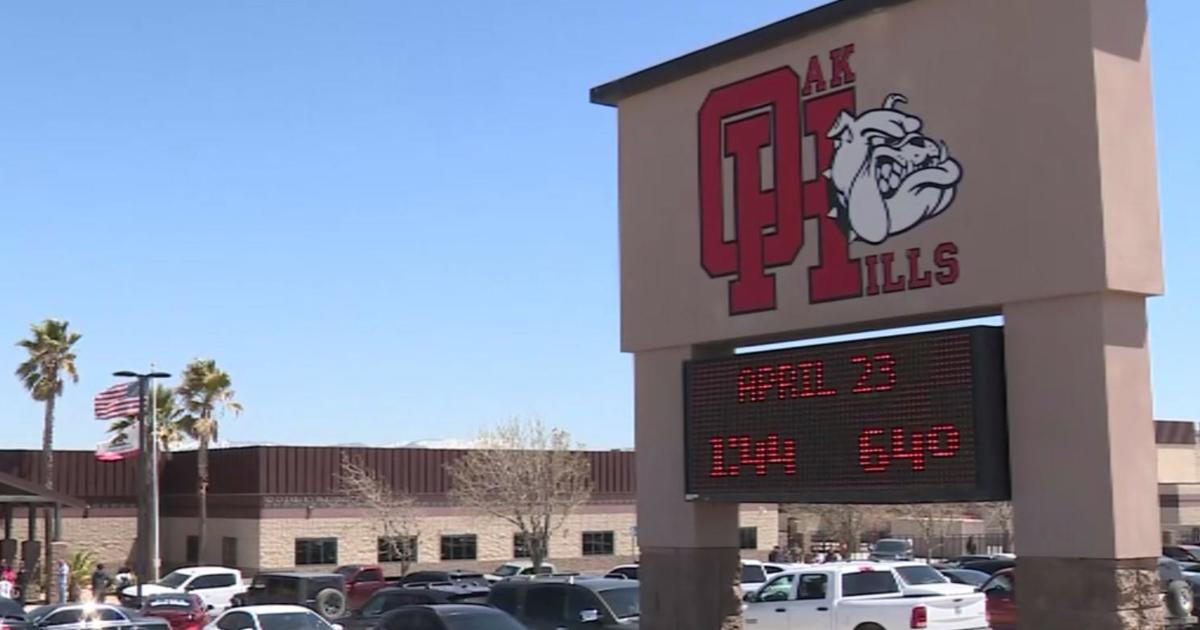Civil Rights Groups Sue LAPD, LA County Sheriff's Department Over Automatic License Plate Readers
LOS ANGELES (CBS/AP) — Two privacy rights groups sued the Los Angeles Police Department and the Los Angeles County Sheriff's Department Monday after both agencies allegedly failed to provide more information about how it uses automatic license plate readers.
The Electronic Frontier Foundation and the American Civil Liberties Union of Southern California claim they filed requests for records on ALPR policy and training, along with a week's worth of ALPR data, eight months ago under the California Public Records Act.
The LAPD and the sheriff's department, however, allegedly refused to hand over the requested documents, according to the complaint.
The ALPR camera systems, which are mounted on police cars and telephone poles, read license plates and record the time, date and location a specific car was encountered.
The readers mostly alert law enforcement to stolen and wanted vehicles.
"If you're not wanted for anything, it doesn't do anything," said Los Angeles County sheriff's Sgt. John Gaw, who works in the Advanced Surveillance and Protection Unit. "It does collect that information, it does put it in our database, and we're able to go back and review that information if you're wanted in some type of criminal investigation."
Jennifer Lynch, an EFF attorney, said the location-based information, like license plate data, can be revealing and tracks the movements of innocent people.
"By matching your car to a particular time, date and location—and building a database of that information over time–law enforcement can learn where you work and live, what doctor you go to, which religious services you attend and who your friends are," she said. "The public needs access to data the police actually have collected to be able to make informed decisions about how ALPR systems can and can't be used."
Peter Bibring, a senior staff attorney for the ACLU of Southern California, said the legal action is an effort to determine how many plates are being collected in a week and also whether the databases, likely taken from areas with higher policing rates, may be more skewed to blacks and Latinos.
Though there is a limit to how long the departments retain the information, there are no clear legal guidelines limiting how the information is used, Bibring said.
"Our concern is they've got this technology that collects information on law abiding residents, and they're saying they can't disclose even a narrow slice of it," Bibring said. But providing such information "would help the public gauge how intrusive it is."
Representatives for the LAPD and the sheriff's department said they do not comment on ongoing litigation.
In the LAPD's response to the public records request, the department said the records could not be provided because they contain "official information" and referred to them as "investigatory files" that need to remain confidential.
The sheriff's department also wrote in its response that it would not provide the data out of a concern for protecting "investigatory or security files."
"The public interest served by not disclosing the record clearly outweighs the public interest served by disclosure of the record," the department wrote.
(TM and © Copyright 2013 CBS Local Media, a division of CBS Radio Inc. and its relevant subsidiaries. CBS RADIO and EYE Logo TM and Copyright 2013 CBS Broadcasting Inc. Used under license. All Rights Reserved. This material may not be published, broadcast, rewritten, or redistributed. The Associated Press contributed to this report.)



